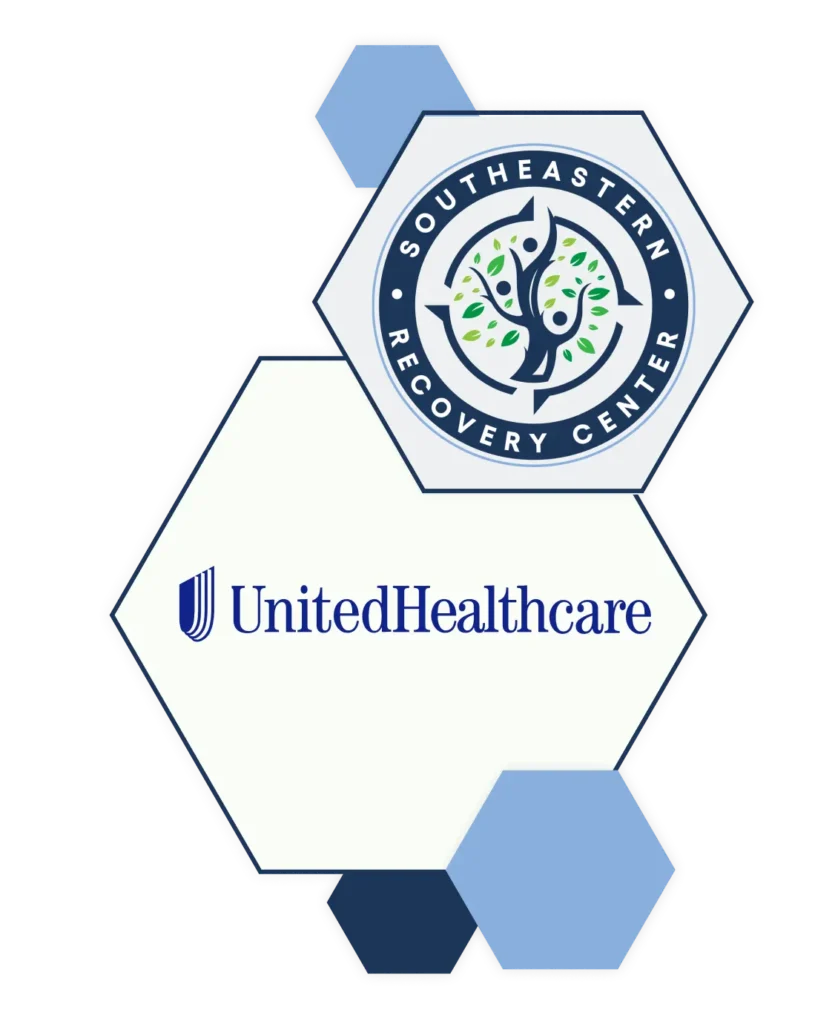Find out if your UnitedHealthcare Insurance Policy covers addiction treatment in North Carolina – or verify your insurance coverage with Southeastern Recovery Center now.
As a part of the Affordable Care Act (ACA), provisions were included that aimed to improve access to mental health services and insurance coverage for mental health conditions. Categorized under the broad term “substance use disorder” in the Diagnostic Manual of Mental Disorders Volume 5 (DSM-5), addiction is considered a mental health condition and treatment is covered under insurance policies.
One of the biggest obstacles people facing addiction have with getting treatment is the cost. Of the 452,000 adults in North Carolina who did not receive mental health care, 44.8% did not receive it because of the cost. The first step to getting addiction treatment in North Carolina is checking your insurance coverage to determine how much, if any, your out of pocket costs for treatment will be.
UnitedHealthcare is a subsidiary of UnitedHealth Group, which is one of the largest healthcare companies in the world. UnitedHealthcare operates as a health insurance provider, offering a variety of health insurance products and services to individuals, employers, and government programs. They provide coverage for medical, dental, vision, pharmacy, and behavioral health services, among others. UnitedHealthcare serves millions of members across the United States and is known for its extensive network of healthcare providers and innovative healthcare solutions.
Throughout its history, UnitedHealthcare has focused on innovation, expanding its network of healthcare providers, and offering a wide range of insurance products to individuals, employers, and government programs.
Here is a timeline of UnitedHealthcare’s history:
UnitedHealthcare is founded by Richard Burke and his partner, initially as United HealthCare Corporation.
UnitedHealthcare becomes a publicly traded company, listed on the NASDAQ stock exchange.
UnitedHealth Group acquires MetraHealth Companies Inc., which was a joint venture between Metropolitan Life Insurance Company (MetLife) and The Travelers Insurance Group.
UnitedHealth Group reorganizes its various healthcare businesses under the UnitedHealthcare brand, aiming for a more unified approach to healthcare delivery and insurance.
UnitedHealth Group launches the UnitedHealth Foundation, a charitable foundation focused on improving health and healthcare.
UnitedHealthcare introduces the "UnitedHealth Premium" designation program, which recognizes healthcare providers for meeting certain quality and cost-efficiency standards.
UnitedHealthcare continues to be one of the largest health insurance providers in the United States, serving millions of members across various insurance products.
In North Carolina, UnitedHealthcare offers a variety of health insurance plans for individuals, families, and employers. These plans provide coverage for medical services, prescription drugs, dental care, vision care, and more.
When reviewing your UnitedHealthcare insurance coverage, it’s essential to understand key terms to make informed decisions about your healthcare. Here are some important terms to know:

Premium: The amount you pay for your insurance coverage, typically on a monthly basis.
Deductible: The amount you must pay out of pocket for covered services before your insurance starts to pay.
Copayment (Copay): A fixed amount you pay for a covered service at the time of service, such as a doctor’s visit or prescription medication.
Coinsurance: The percentage of costs you pay for covered services after you’ve met your deductible.
Out-of-Pocket Maximum (OOP Max): The maximum amount you have to pay for covered services during a policy period (usually one year) before your insurance plan covers 100% of the allowed amount.
Network: The group of doctors, hospitals, and other healthcare providers that have contracted with your insurance company to provide services at discounted rates.
In-Network: Healthcare providers who have contracted with your insurance company to provide services at discounted rates.
Out-of-Network: Healthcare providers who have not contracted with your insurance company. Going out-of-network may result in higher costs or limited coverage.
Prior Authorization: Approval required from your insurance company before receiving certain services, procedures, or medications to ensure they are medically necessary.
Formulary: A list of prescription drugs covered by your insurance plan. Drugs are usually categorized into tiers, which determine your copayment or coinsurance amount.
Preventive Services: Services such as screenings, vaccinations, and counseling that are covered at no cost to you under most insurance plans.
Explanation of Benefits (EOB): A statement sent by your insurance company after you receive medical services, detailing what was covered, what you owe, and any remaining balance.
Health Savings Account (HSA): An account that allows you to save money tax-free for qualified medical expenses if you have a high-deductible health plan.
Flexible Spending Account (FSA): An account that allows you to set aside pre-tax dollars to pay for eligible medical expenses not covered by insurance.
Health Reimbursement Account (HRA): An employer-funded account that reimburses employees for eligible medical expenses.

As a trusted insurance provider in healthcare (and mental health), UnitedHealthcare serves millions of subscribers across the country each year – but it doesn’t mean that navigating the fine print has gotten any easier. When looking for addiction treatment in North Carolina, the last thing you need to worry about is the fine print of your UnitedHealthcare insurance policy, which is why Southeaster Recovery Center is here to help.
Our staff is trained in handling UnitedHealthcare insurance coverage questions and you can even verify your UnitedHealthcare benefits online to determine what your potential out of pocket costs will be for treatment. We believe in making the process of getting addiction treatment easy and transparent – that way you can receive the treatment you need without surprise bills at the end of your program. If you are ready to get started, call Southeastern Recovery Center today.
